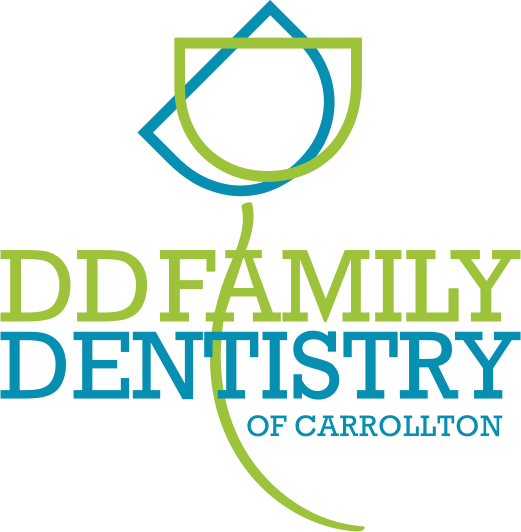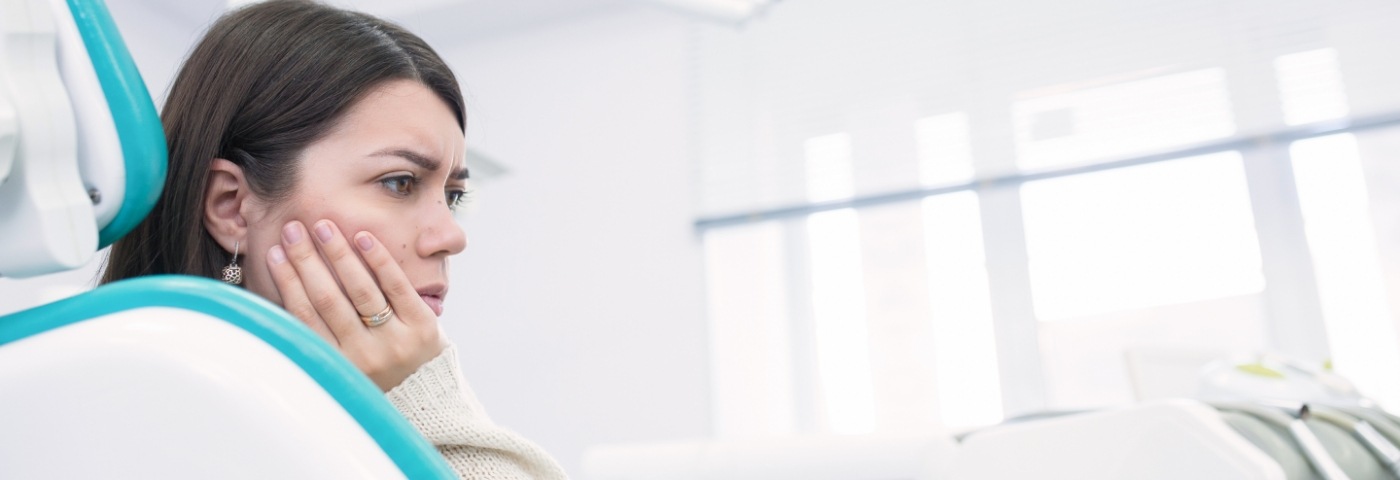Emergency Dentist Carrollton
Timely Treatment When You Need It Most
You can’t always plan for when you need to visit the dentist. If a severe toothache or broken tooth catches you by surprise, Dr. Durga and our whole team are prepared to provide same-day, evening, and weekend emergency appointments. Sometimes, getting attention right away can mean the difference between saving your tooth or not.
If you are unsure whether or not you’re dealing with a dental emergency, remember that if you’ve broken something, are in pain, or are bleeding from the mouth, chances are you need to seek urgent attention from an emergency dentist in Carrollton. Contact us right away, and a member of our team will let you know what to do.
Why Choose DD Family Dentistry of Carrollton for Emergency Dental Care?
- Same-Day, Evening, and Weekend Appointments
- Wide Range of Personalized Services All Under One Roof
- Numerous Options to Make Emergency Dental Care More Affordable
What to Do in a Dental Emergency

A dental emergency is called an emergency for a reason. The sooner you can get to our office for treatment, the higher your chances are of a full and easy recovery. If you let a toothache fester, we may need to extract your tooth rather than provide a simple root canal. When an emergency occurs, time is of the essence so call our office right away if you’re experiencing one. From there, here’s what you can expect:
- Schedule a same-day emergency appointment: We make every effort to see our emergency patients the same day they call us. We’ll also provide first-aid instructions for managing your situation until you can reach us.
- Your emergency exam with Dr. Durga Devarakonda: As soon as you arrive, we’ll get to work relieving any immediate, intense pain and examining your smile to determine the extent and source of your emergency.
- Review the findings and make a plan: Next, we’ll review our findings with you and fully explain all your treatment options. You’ll always know the estimated length and cost of a treatment before we begin.
- Get the care you need right away: As soon as you’ve agreed to a treatment plan, we’ll start repairing your smile, whether that’s with a filling, root canal therapy, or something else entirely. Before you know it, you’ll be back to enjoying a happy, healthy, and pain-free smile!
The Most Common Dental Emergencies
There is a difference between dental pain and an emergency. Sometimes, a piece of food can cause significant pain and irritation, but by simply brushing and flossing, you can make yourself comfortable. However, when dental pain occurs that keeps you from doing your normal activities like eating, speaking, and focusing on work, you’ll need to visit our office right away for treatment. Additionally, if any part of your tooth breaks, even without pain, you should call us as soon as possible for treatment. If you see your situation listed among the following common dental emergencies, don’t hesitate to get in touch with us right away!
Understanding the Cost of Dental Emergencies

If the unexpected happens and you experience a serious dental injury or infection, you should not be afraid to contact your dentist because you are worried about how much treatment will cost. At DD Family Dentistry of Carrollton, we are committed to providing quality, affordable dental care for every patient, including those who need emergency treatment. Our dedicated staff will work on your behalf to maximize your dental insurance benefits and reduce out-of-pocket costs. We are also happy to connect uninsured patients with additional resources that will make paying for emergency treatment extremely manageable and not a major source of stress.
What Factors Influence the Cost of Emergency Dental Care?
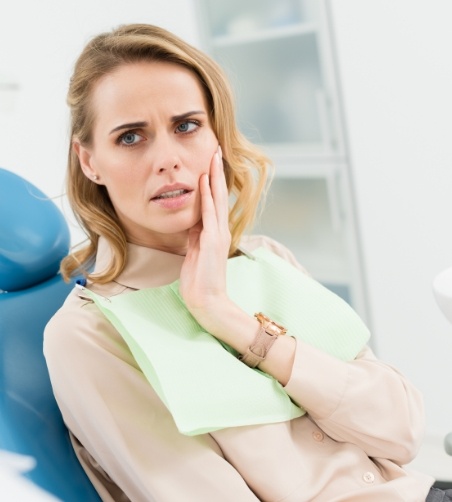
As you may expect, emergency dental care typically costs more than a routine dental checkup and cleaning. The final cost of treating a dental emergency is often influenced by a variety of factors, such as:
- Where You Are Located: All types of dental care, including emergency care, tend to be more expensive in larger cities or other communities where the cost of living is higher.
- If You Have Dental Insurance: Your out-of-pocket expenses for emergency care will likely be significantly reduced if you have dental insurance.
- Type of Treatment You Need: Your costs will vary depending on the type of treatment you need, as will your insurance coverage. While every insurance plan is different, most plans cover minor services at 70-80% and major restorative treatment at 50-70%. If you would like help understanding the particulars of your insurance plan, just ask our knowledgeable and friendly staff!
Does Dental Insurance Cover Dental Emergencies?
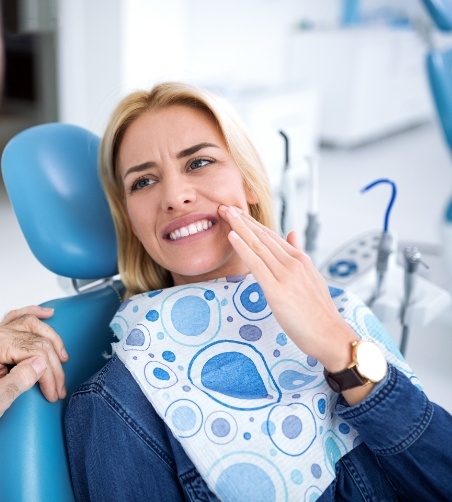
Because there are so many different types of dental emergencies that can occur, plus all of the varying insurance plans, it’s difficult to know the coverage that you may receive. However, our front desk team works closely with insurance providers to maximize your benefits while minimizing out-of-pocket spending. Typically, most insurance plans will be able to at least partially cover your treatment, making our high-quality dentistry also affordable and accessible. We are proud to be an in-network provider for the following PPO dental insurance plans:
- Aetna
- BlueCross BlueShield
- Guardian
Don’t have dental insurance? No problem. Our in-house membership dental savings plan is designed to provide uninsured patients with quality dental care, including emergency care, for an affordable monthly fee.
Why You Should Schedule a Consultation
Putting off emergency dental care will likely only make the situation worse and may even lead to irreversible damage. So, if you experience a dental emergency, you should not hesitate to schedule an immediate consultation with Dr. Durga. During your emergency appointment, Dr. Durga will examine your teeth and mouth to determine the severity of the problem and recommend appropriate treatment options. She will also be able to discuss the estimated cost of emergency treatment with you at that time.
How to Prevent Dental Emergencies
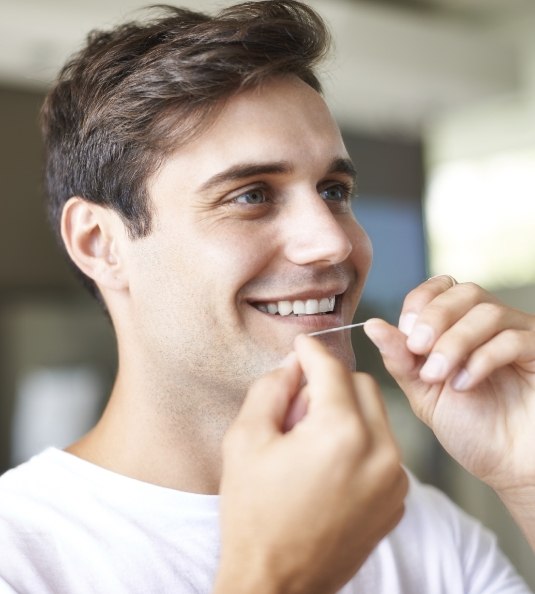
When a dental emergency occurs, it’s important that you have a plan in place to get help as quickly as possible. But wouldn’t it be better to take proactive steps to avoid seeing an emergency dentist altogether? We’re here when you need us most, but we’re also available to help you safeguard your smile with ways to prevent dental emergencies. Below you will find some useful tips you can apply to your daily life that will ensure your teeth remain damage-free. If you have any questions or need assistance, please don’t hesitate to contact our office.
Visit Your Dentist Regularly

One of the most important ways you can avoid decay and serious damage to your teeth is by seeing your dentist regularly. During these six-month visits, our team can check for signs that may negatively impact your smile in the future and quickly work to treat these issues early on. We can also clean your teeth and remove hardened plaque and tartar that can lead to tooth decay and gum disease. One of the best parts of these appointments is that most dental insurance companies cover them at 80-100%, so you have little to no out-of-pocket expenses. Uninsured? You can apply for our dental savings plan that provides you with a host of benefits all for one low, monthly fee.
Maintain Good Oral Hygiene Habits at Home
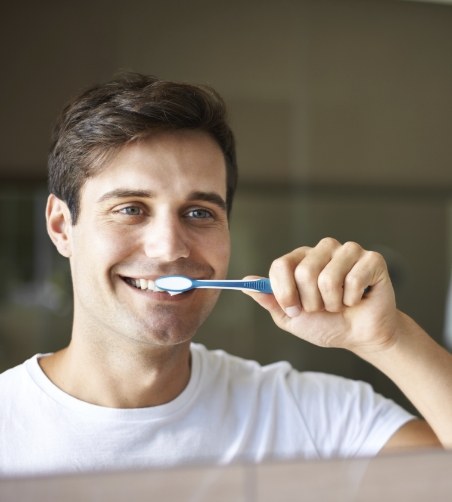
Apart from the visits to our office, you’ll also need to take the necessary steps at home to keep your teeth and gums healthy and strong. By maintaining a good oral hygiene routine, you can keep bad bacteria and acids from eating away at your tooth enamel and causing dental caries, gum disease, or bad breath. Remember to brush twice a day for two minutes, floss at least once a day, and rinse with an antimicrobial mouthwash, as these steps will help keep your smile looking and feeling its best.
Stick to a Nutritious Diet

Leafy greens, lean proteins, low-fat dairy, fruits, and vegetables are all nutrient-rich foods that are ideal for consumption if you want to maintain a healthy smile. Potato chips, candy, and other forms of junk food, especially those that are hard and crunchy, can not only increase your waistline but also increase your risk for decay and disease as well as cause chips and cracks in your teeth. Whether it is popcorn kernels, peanut brittle, or chomping down on ice, you run the risk of fracturing, breaking, or chipping a tooth and spending the rest of your day in your emergency dental office.
Wear a Mouthguard
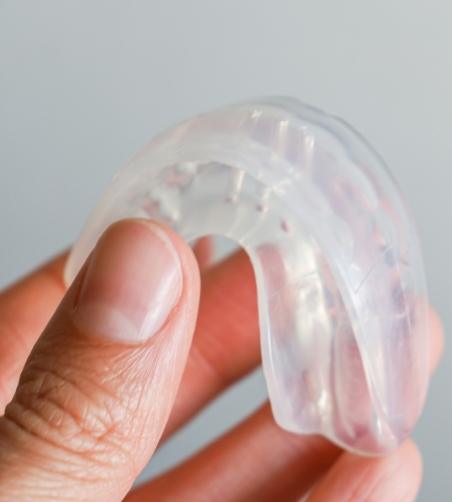
If you enjoy sports or physical activities, make sure to talk to our team about mouthguards. These custom-made oral appliances are great for protecting your teeth, gums, and bones from hard-hitting tackles or fly balls.
Maybe you struggle with teeth grinding at night while you sleep. If so, a custom-fabricated nightguard can help keep your teeth from coming into contact with each other throughout the night, decreasing the wear and tear on your teeth and alleviating any jaw pain you might experience.
Use Tools, Not Teeth to Open Packaging
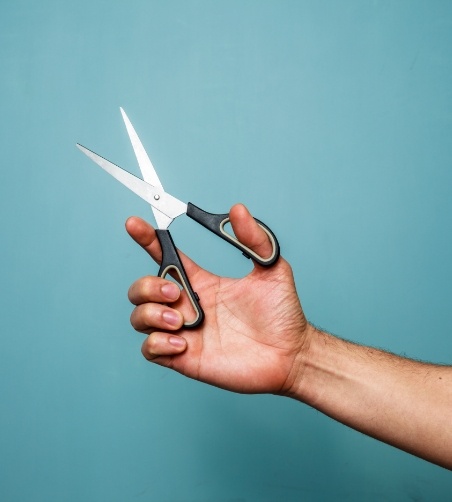
If you’re like most people, the minute you experience difficulty opening a small package or container, you bring it to your mouth to let your teeth take on the task. Unfortunately, this can spell disaster for your smile. While you may not think opening a small package of soy sauce will damage your pearly whites, it can cause small tooth fractures or cracks to develop, resulting in necessary emergency dental care. This means more time and money spent on repairing a problem that could have been avoided in the first place. Instead of relying on your teeth for these tasks, spend the extra few minutes finding the right tool to take care of the job.
Dental Emergency FAQs
Will my toothache go away on its own?
In the vast majority of cases, toothaches do not vanish on their own. You should absolutely schedule an appointment with a dentist to have it looked at, as there are all sorts of reasons why you could be experiencing tooth pain. This way, underlying problems can be caught before becoming more serious and causing further issues.
How should I sleep with tooth pain?
When dealing with a toothache at night, it can be difficult to get some quality sleep until you can head to the dental office. Try to keep your head elevated. This will prevent blood from rushing to your head and intensifying your toothache. Additionally, take over-the-counter pain relievers as needed, and avoid foods that are particularly cold, acidic, or hard before bed. A cold compress may also help to dull some of the discomfort you’re experiencing.
What does throbbing tooth pain mean?
Throbbing tooth pain often is a sign of infection or inflammation within the tooth. Cavities and cracks in the tooth can allow air and bacteria to reach the sensitive inner area where the pulp is located. This results in irritation and potentially an infection of the pulp nerves, therefore causing pain. This can also occur if decay is present. In other cases, throbbing tooth pain could be caused by chronic teeth grinding and clenching.
My chipped tooth doesn’t hurt. Do I still need to visit?
You should always schedule an appointment with a dentist following a chipped tooth, even if you aren’t experiencing any discomfort. While you don’t feel pain, you won’t know for sure if the inner area of the tooth is exposed until a dentist examines it. Chipped teeth can also break further without treatment. Fortunately, you don’t need to immediately drop everything you’re doing and head to the dental office. Just give us a call in the next couple of days so we can schedule you for an urgent visit.
Should I go to the ER or dentist for dental emergencies?
When an emergency strikes, your instinct might be to go to the closest hospital, but that may not be the best decision. Although the emergency room can save your life, it may not be the place to save your smile. While they can prescribe pain relievers and antibiotics, they aren’t equipped to treat dental issues. Unless you have a medical problem that needs attention, like lacerations or fractures, it’s better to contact your emergency dentist.
Do chipped teeth heal on their own?
Your teeth are protected by the hardest substance in your body. While enamel is very strong, it isn’t indestructible. Unlike other tissues, it can’t regenerate. Once it is gone, you’ve lost it for good. Therefore, even the smallest chips won’t heal on their own. Your tooth may remineralize, but that isn’t the same as your tooth “growing back.” No matter how insignificant damage to your enamel appears, it’s always best to see your dentist to ensure your teeth are protected.
Are knocked-out baby teeth a dental emergency?
Baby teeth are only in place for a few short years, but losing one too soon can cause lasting consequences for your child. They act as placeholders for adult teeth, while also allowing them to develop the oral functions necessary for eating and speaking. If a primary tooth is displaced, you need a dentist who can handle the dental emergency to avoid potential complications, like the adult tooth erupting too soon.
Can I use super glue to fix broken dentures?
Superglue can be a quick fix for many items in your home, like coffee mugs. Although it’s handy, you don’t want to use it to fix broken dentures. The chemicals in the glue can be toxic or cause allergic reactions in some patients. It can also change the way your food tastes. Superglue also doesn’t do well in damp environments, like your mouth, so the hold won’t last for long. It’s best to leave the repairs to the professionals. We know you can’t go without your teeth, so we’ll get you into the office quickly for repairs or a replacement. If you’re unsure what to do in the meantime, contact our office for further instructions. We may advise you to stop wearing your dentures until after they have been fixed.
Can I pop a dental abscess on my own?
Although a dental abscess may look like a giant pimple, resist the urge to pop it. Draining an abscess at home will expose your mouth to more bacteria that can lead to bigger problems. Don’t wait for the abscess to drain on its own, either. The infection can spread from the mouth to other areas, like the neck, throat, or head, causing potentially life-threatening complications. Instead, visit an emergency dentist right away to treat the infection while finding the source of the problem to support a healthy mouth and body.

